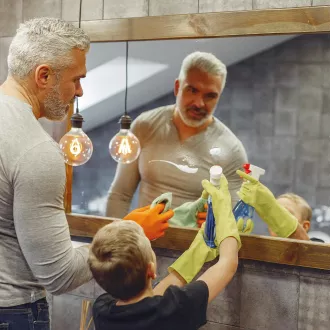Transcription Confidence in one's own ability to solve problems
This issue is very important, as fostering independence and problem solving are critical skills for children's development. Therefore, it is critical for parents and caregivers to focus on how to support the development of these skills and how to foster children's confidence in their ability to problem solve.
What does it mean to foster confidence in one's own problem-solving ability?
Building confidence in problem-solving skills means teaching children to trust themselves and their abilities to resolve adversity and conflict. It also means developing in children a positive attitude towards challenges, encouraging them to seek solutions and learn from their mistakes. When children have self-confidence, they feel more confident to face any challenge and solve the problems they face intelligently.
Why is it important to foster confidence in one's own problem-solving abilities?
Fostering confidence in one's own problem-solving ability is essential for children's emotional and cognitive development. Problem solving is an important skill in children's lives and futures, and helps them succeed in all areas of their lives. In addition, when children are confident in their ability to solve problems, they may feel more confident, more independent, better able to make decisions and face challenges. Confidence in one's assertiveness can also help reduce anxiety and stress that can arise when facing challenges or problems.
How can confidence in one's own problem-solving abilities be fostered?
There are several strategies that parents and caregivers can use to build confidence in their own problem-solving skills. Some of these strategies include the following:
- Encourage independence: allowing children to make decisions and solve problems on their own gives them the opportunity to develop confidence in their ability to do so. Parents and caregivers can start by allowing children to make decisions about simple things, such as the clothes they want to wear, the toy they want to play with, or what activities they want to do during the day. Over time, childre
trust resolution problems




